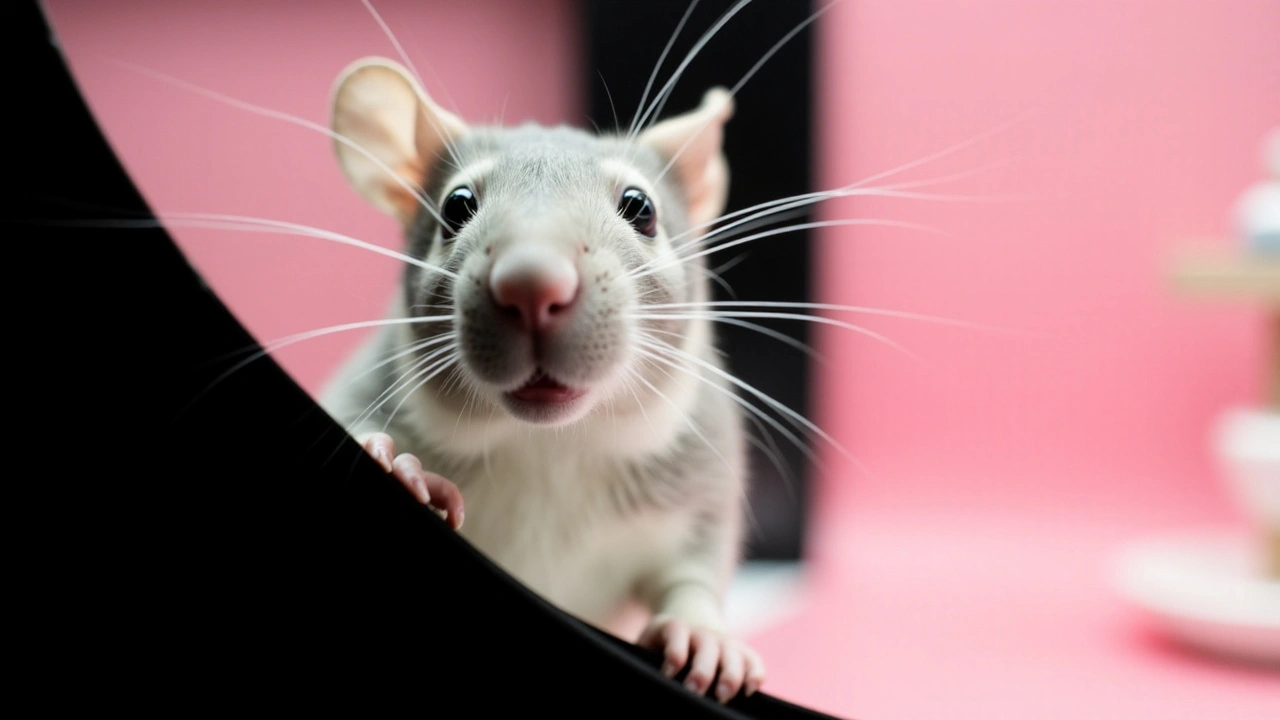
Flight from Oslo Faced Emergency Landing
Unexpected situations can occur at any time during a flight, but one recent event has raised eyebrows and concerns about airline safety and hygiene standards. On September 21, 2024, a flight originating from Norway's capital, Oslo, was forced to make an emergency landing. The reason? A live mouse was found in a passenger's in-flight meal, causing quite the stir among those aboard.
The unnamed passenger discovered the mouse during meal service, an experience that turned from routine to alarming in a matter of seconds. As the small creature 'jumped' out of the meal, the situation demanded immediate attention. Understandably, the passenger was quick to alert the flight attendants, setting off a chain of events that led to the aircraft's unscheduled descent to the nearest airport.
The flight crew, prioritizing the safety and well-being of all passengers, decided to divert the flight. The plane, whose airline name and flight number have not been disclosed, landed safely without any reported injuries. Passengers were evacuated in an orderly manner, but the incident left many questioning the standards of airline catering services and the quality control processes in place.
While airlines put significant effort into ensuring the safety and comfort of passengers, this incident highlights an area where more stringent measures may be needed. Airline meals are prepared by specialized catering companies, and the occurrence of a live mouse escaping the scrutiny of multiple layers of quality control raises several questions. How could such an incident happen, and what steps are being taken to prevent a recurrence?
Concerns About Airline Catering Standards
Airline catering services are a crucial part of the in-flight experience, and passengers rely on them for nourishment during their travels. However, the discovery of a live mouse in an in-flight meal has spotlighted the vulnerabilities inherent in the current system. The presence of such a contamination strongly suggests lapses in the hygiene standards and protocols that are supposed to safeguard passengers' health.
Investigations are likely to delve into the entire supply chain, from the catering company responsible for preparing the meals to how the food is stored and handled before being served on the plane. Ensuring that pests such as mice do not infiltrate the food preparation areas will be a top priority. This involves not only thorough inspections and pest control measures but also strict adherence to cleanliness and hygiene regulations.
Experts in food safety and airline operations are calling for an overhaul of the current practices. Enhanced training for staff handling the meals, state-of-the-art pest control technologies, and perhaps even more frequent inspections are being suggested as potential improvements. Passengers trust airlines with their safety, and part of this trust involves the assurance that the food they consume onboard is prepared in a safe and sterile environment.
Airline's Response and Investigations
The airline involved in this incident has commenced an investigation to determine the source of the mouse and to ensure such an incident does not happen again. Although no specifics of the airline or flight number have been released, it is clear that the situation has attracted significant attention.
The investigation will likely cover several areas, including where the food was prepared, the transport of the meals to the airline, and how they were handled before being served to passengers. Each step in this chain will be scrutinized to locate any potential breach in protocols. Additionally, the airline will have to work closely with the catering company to review and possibly revamp their quality assurance processes.
Regulatory bodies may also become involved to evaluate the current standards within the industry and recommend changes if necessary. Any findings from such an investigation would have implications not just for one airline but potentially for all carriers worldwide.
The Passenger Experience and Broader Implications
For the passengers involved in the incident, the experience was undoubtedly unsettling. Eating is a routine part of the flight experience, yet this incident showed how quickly a meal could lead to an emergency situation. While there were no injuries reported, the psychological impact on passengers, especially the one who discovered the mouse, cannot be understated.
This event could influence passengers' perceptions of airline safety and the trust they place in the food served aboard flights. Moving forward, airlines might find themselves needing to go the extra mile to reassure their customers that their meals are safe and hygienic. Transparent communication about the steps being taken to address and prevent such issues could help restore confidence.
Looking at the bigger picture, this incident highlights the interconnected nature of airline operations. A problem in one area, such as food safety, can lead to significant disruptions and impact multiple facets of the travel experience.
Ultimately, airlines have a duty to provide not only a safe and comfortable journey but also meals that passengers can consume with peace of mind. Ensuring robust quality controls and maintaining high hygiene standards are vital components of this responsibility. This incident serves as a stark reminder of the importance of vigilance and rigorous standards in every aspect of airline operations.
16 Comments
Write a comment
More Articles

Ecuador and Venezuela Clash: Copa America 2024 Match Preview, Analysis, and Predictions
An in-depth preview of the Copa America 2024 match between Ecuador and Venezuela. The analysis covers both teams' recent performances, key players, strategies, and head-to-head records. Ecuador is expected to win with a predicted score of 2-0, given their strong squad and Venezuela's inconsistent form. Expert insights for football enthusiasts are included.

Timberwolves vs. Mavericks: In-Depth Analysis and Predictions for the Crucial Western Conference Final
The NBA Western Conference Final is set with the Timberwolves and Mavericks clashing for a spot in the NBA Finals. The Timberwolves, having had a stellar run, will challenge the Mavericks, who have shown remarkable strength. With Minnesota's slight edge in offense and stronger defense, they are favored to advance to the Finals.

Lagos Resilience Forum 2024: Bringing Stakeholders Together for Urban Solutions
The Lagos State Government has scheduled the Lagos Resilience Forum for July 2nd, 2024. The forum will gather stakeholders to discuss solutions to the state's urban challenges, featuring keynote speakers, panel discussions, and exhibitions. The initiative aims to foster resilience and support sustainable development in Lagos.
Gaurav Bhujade
September 23, 2024 AT 00:40The presence of a live mouse indicates a breach in the catering supply chain. Food preparation facilities must follow HACCP protocols to prevent such contamination. Regular pest inspections are essential for any certified kitchen. Airlines rely on third‑party contractors, so oversight must extend to those vendors. Strengthening audit frequency could reduce recurrence.